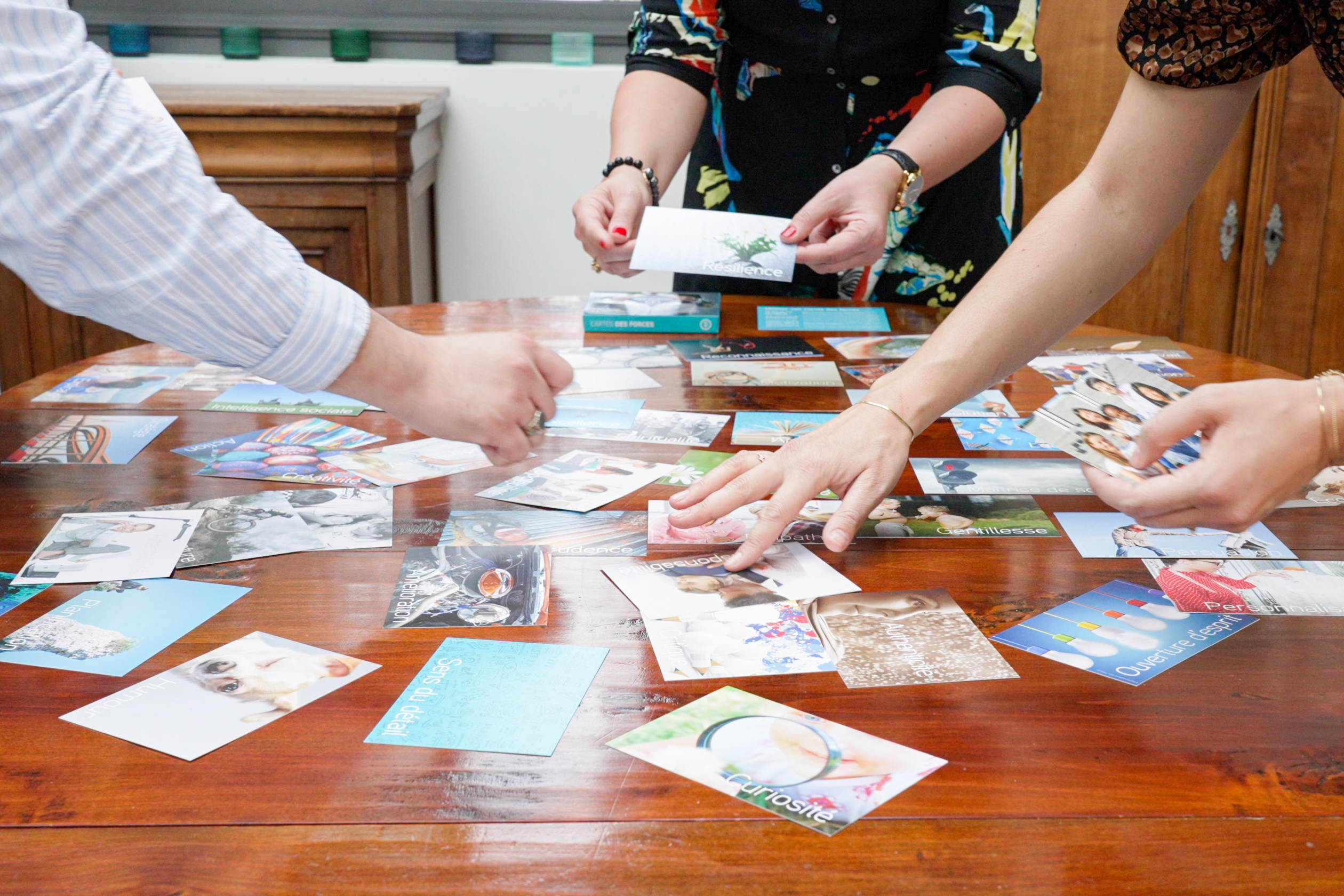Positive psychology, or the science of happiness, investigates the areas of optimal functioning for individuals, groups, and institutions. It was therefore inevitable that research would focus on human motivation.
What helps me get started when I feel stuck? How do I stop procrastinating? How do I avoid giving up? How do I succeed when I'm afraid I won't succeed or when I'm bored? Where do I begin? What factors need to be in place for me to want to get started? How can I cultivate them to become absorbed in what I'm doing?
Here are a few keys to motivate you!
The reference theory: Self-determination
Among all the existing theories, it is that of Deci and Ryan that has shaped the entire field of positive psychology. Indeed, these two researchers demonstrated that we oscillate between different types of motivation, ranging from extrinsic to intrinsic. In other words, we are either motivated by something external to the situation, such as a salary or benefits, or we are motivated by something internal. It is this intrinsic motivation that we should strive to achieve in order to be genuinely motivated.
But how do we go about it? Phew, Deci & Ryan have given us some more ideas that we're sharing with you. We all have 3 types of basic needsThese are the ones we need to strive to satisfy in order to find deep motivation.
FACTOR 1: Autonomy
To voluntarily decide on one's actions, to be the agent who carries them out in congruence with oneself.
How to satisfy one's need for autonomy?
- Ask yourself how to go from "I do it because I have to do it" to "I do it because I enjoy doing it"?
- Aren't there things you can do in this project to feel more autonomous: choosing the timing, the way of doing things, the work team, the work locations?
- Have you identified the important steps and key deadlines of the project? Having a clear vision of the project helps to get started.
- 2 short-term motivation techniques:
1- “Eat the frog first”: start with the heaviest part of the project (example: writing the complicated email or investigating the complex administrative file): once done, the rest will seem easy!
2- Set yourself very tight deadlines to give yourself a boost (example: “I have two hours to send this document)”.
FACTOR 2: Competence
To be effective in one's environment, to feel responsible for the effects that occur.
How can this need be met?
- Nothing undermines motivation more than a lack of self-confidence. Make a list of your past successes, ask yourself what you managed to achieve and the skills you used. Examine these successes in detail to find your keys to success.
- Do you know your strengths? Rethink your various tasks to align them with your strengths: you'll feel authentic, productive, and energized. To take the test, Click hereTo play with your loved ones, Discover our strength maps.
- Have fun! If you laugh, share, and enjoy yourself, you'll develop positive emotions and creativity. These resources will help motivate you, and as an added bonus, motivate others because positivity is contagious. Read researcher Barbara Fredrickson's work on the subject.
- Is your task challenging enough? Isn't it unattainable? Make sure you challenge yourself without being afraid. Find the right balance to get into the flow (or optimal motivation): a video to help you.
- Look at and celebrate what you achieve. Your failures become keys to learning, your successes keys to joy and perseverance.
FACTOR 3: The link to the other
Being connected to people who are important to you, feeling their gentle and kind attention.
How can this need be met?
Do you have a shared vision for the project? Make sure everyone understands the purpose of this project so they can be a supportive, committed, and loyal member of the project.
Observe how your role models succeed. What do they do? How do they achieve their goals? What are their tips and advice? What do you appreciate about their work? Their attitude? These people who inspire you are sources of motivation.
Do you have people who can make you think differently? Make sure you compare your ideas and ways of doing things with others: they can help you see things from a different angle, change your strategy, or see new, more positive ways to move forward.
Do you have support around you? Identify the people who can help you with the technical aspects? the financial aspects? who offer you a listening ear? love? motivation? These strong relationships will help you get started, stay on course through the storm, and pop the champagne once the goal is reached.
(Discover the keys to strengthening your positive relationships at work.)
A 4th KEY FACTOR: MEANING
For Deci and Ryan, autonomy, competence, and connection to others are our three fundamental needs. Subsequent researchers, such as Frankl and Langle, have further illuminated their work. For them, a fourth factor was essential: meaning. Indeed, the project we want to complete must be one that is dear to our hearts. Without this, we cannot be motivated.
How to satisfy one's need for meaning?
The 4 keys to motivation in positive psychology --> Autonomy, Competence, Connection to others, and Meaning
When faced with any situation where you feel stuck, overwhelmed, or procrastinating, take the time to ask yourself these questions about your four fundamental needs. The keys to getting started are inevitably found in one or more of these factors.
Have a good trip!
Go further with the 4 keys to motivation in positive psychology
At work:
- Mastering scientific knowledge and practices related to motivation at work is covered in our training module: Motivation and flow
- Propose a conference on optimal motivation
- Listen Dan Pink on intrinsic motivation in cthis TEDx video
In positive education:
- Boost children's motivation with our game: Cards of fantastic powers
Delve deeper with these scientific articles on motivation:




Leave a comment
All comments are moderated before being published.
This site is protected by hCaptcha and the hCaptcha Privacy Policy and Terms of Service apply.